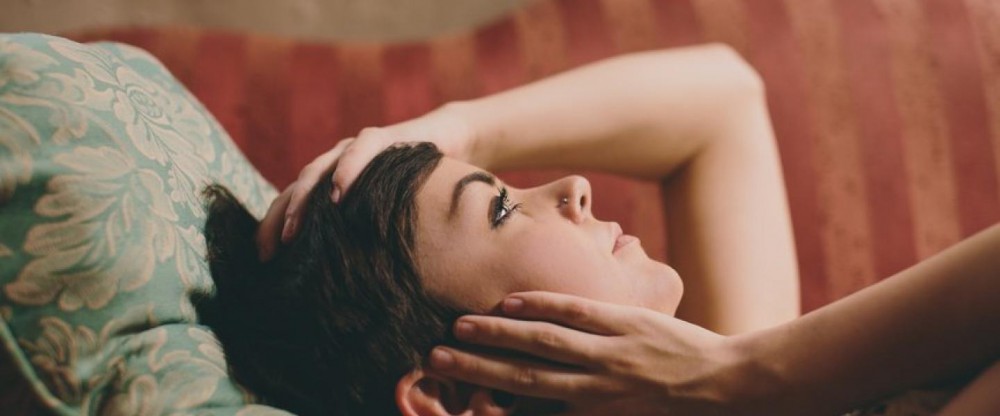Trauma and Sleep
Stress from a traumatic event can often lead to a variety of sleep problems. When the body is overstimulated, the brain is flooded with neurochemicals that keep us awake, such as epinephrine and adrenaline, making it difficult to wind down at the end of the day. The neurochemicals remain present in the brain and can interrupt your normal sleep cycle. The result can be insomnia, bad dreams, and daytime fatigue caused by sleep disturbance.
The following are common sleep problems following a trauma:
- Flashbacks and troubling thoughts can make falling asleep difficult.
- The victim might feel the need to maintain a high level of vigilance, which can make sleep difficult.
- For those who experience violent situations, nighttime and darkness can, in and of themselves, bring about added anxiety and restlessness.
- Taking naps during the day might be helpful, but, if overdone, can also interfere with your efforts to sleep through the night.
- Once asleep, nightmares can frighten a survivor back to consciousness, and getting back to sleep can be very difficult.
- Many survivors use alcohol or other drugs to numb the emotional and physical pain following trauma. These substances can not only impact the healing process, they can also exacerbate sleep problems.
Some people with sleep problems and anxiety have posttraumatic stress disorder, or PTSD. PTSD is a reaction to a traumatic stressful event resulting in a feeling of a loss of control and an inability to help yourself in a bad situation. It’s often experienced by people who are in situations that range from combat to rape, but it can be caused by a variety of events.
Coping
For those who are experiencing temporary sleep problems, there are a number of recommendations for dealing with insomnia, bad dreams, and daytime fatigue. Sleep experts recommend trying to reduce feelings of stress, especially before bedtime. Don’t watch the news right before going to bed. Avoid coffee in the afternoon and evening. Take a warm bath or soak in a hot tub before bedtime. If sleep problems persist, see your doctor, who can prescribe medications that will help you sleep but won’t make you groggy in the morning.
Tips
- Sleep in a location where you will feel most rested and safe. While the bedroom is optimal, it may not be possible to rest there soon after the trauma if you experienced violence in that room.
- Create an environment in which you can sleep well. It should be safe, quiet, cool and comfortable. While it often helps to sleep in a dark room, if keeping a nightlight on helps bring about a more safe feeling, then consider keeping the room dimly lit. It may also help to have a friend or family member stay in the room, or perhaps in a nearby room, while you are sleeping.
- Engage in a relaxing, non-alerting activity at bedtime such as reading or listening to music. For some people, soaking in a warm bath or hot tub can be helpful. Avoid activities that are mentally or physically stimulating, including discussion about your violent experience, right before bedtime.
- Do not eat or drink too much before bedtime and recognize the negative role that alcohol can have on your sleep.
- Rest when you need to rest. It is common to feel exhausted after a violent trauma, so you may need more rest or to rest differently during this time. Relaxing and resting for brief times throughout the day and taking short naps (15-45 minutes) may help.
- Go to bed when you feel ready to sleep. Try not to force sleep, which can add to the pressure of wanting to get to sleep. Developing the harmful habit of lying in bed awake for long periods when you want to sleep is counter-productive.
Sleep tips and information were created by Witness Justice, in partnership with the National Sleep Foundation, Dr. Barry Krakow of The Sleep and Human Health Institute and Dr. Gregory Belenky of the physician and a leading sleep researcher of the Walter Reed Institute of Research.
The right head support can greatly improve how comfortable you feel in bed.Sleep talking, formally known as somniloquy, is a sleep disorder defined as talking during sleep without being aware of it. Sleep talking can involve complicated dialogues or monologues, complete gibberish or mumbling. The good news is that for most people it is a rare and short-lived occurrence. Anyone can experience sleep talking, but the condition is more common in males...Nearly one-quarter of all workers have shifts that are not during the daytime, and more than two-thirds of these workers...The Electronics and Sleep infographic highlights how technology affects the modern family and how parents can help design a sleep...Orexin receptor antagonists: A new class of sleeping pill Find out more about orexin, and a new type of sleep...Great news: more than three-fourths (76%) of those surveyed say that they had a good night’s sleep at least a...The term “anti-aging” may conjure up images of expensive wrinkle creams and nutritional supplements, but one of the most impactful...Though it may come as no surprise that people find it harder to fall asleep when they’re emotionally wound up,...Sleep problems like insomnia can be caused by many different factors, including chronic pain, acid reflux, and depression. But did...Sleep problems are common among kids who are anxious or who are making a transition to a new school. They...

Source: Internet
